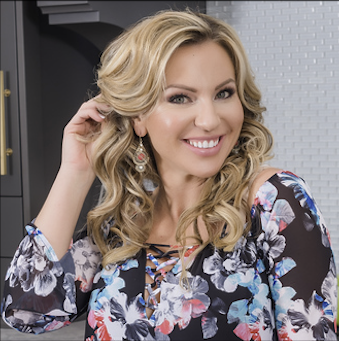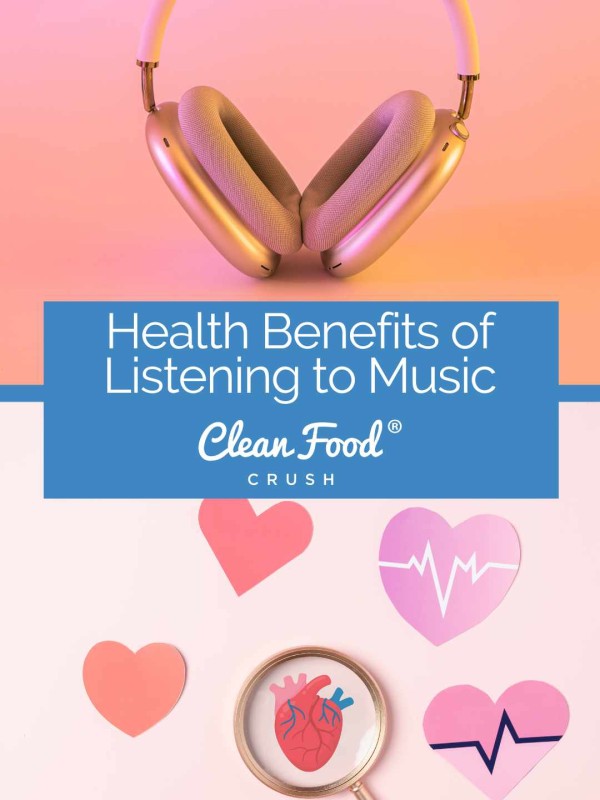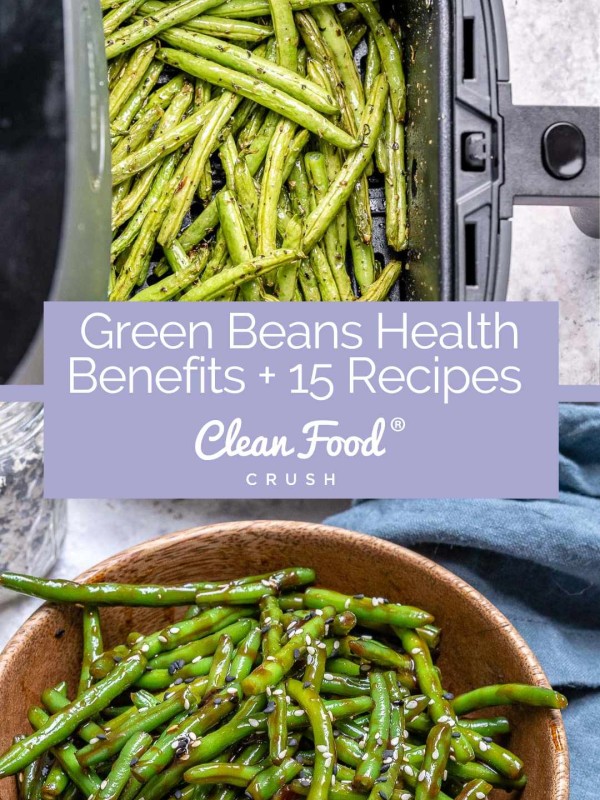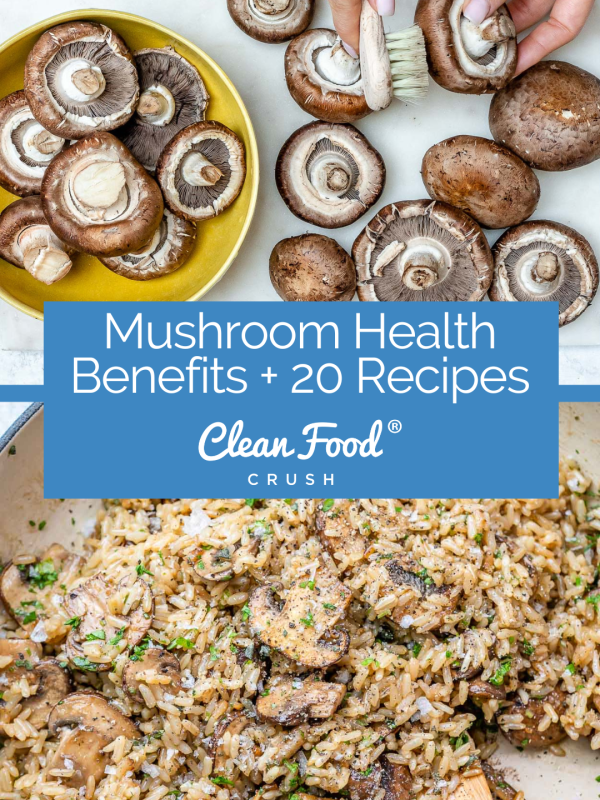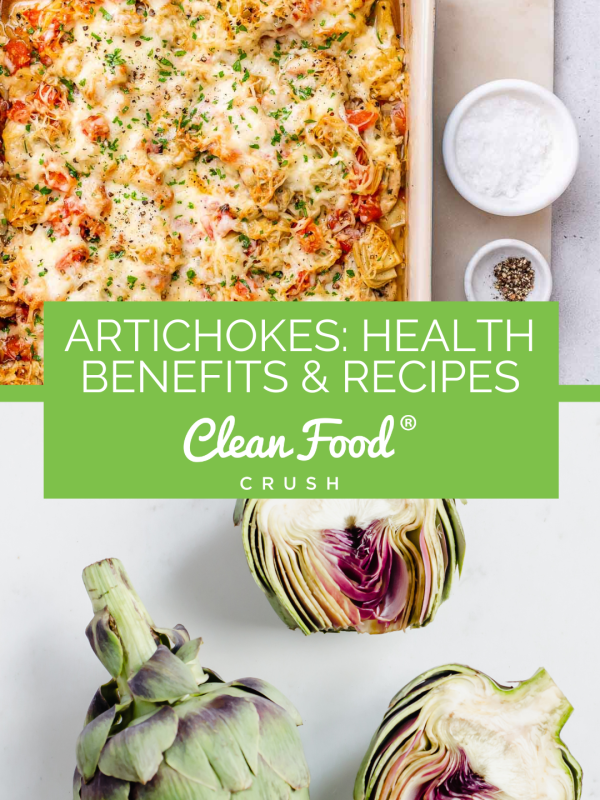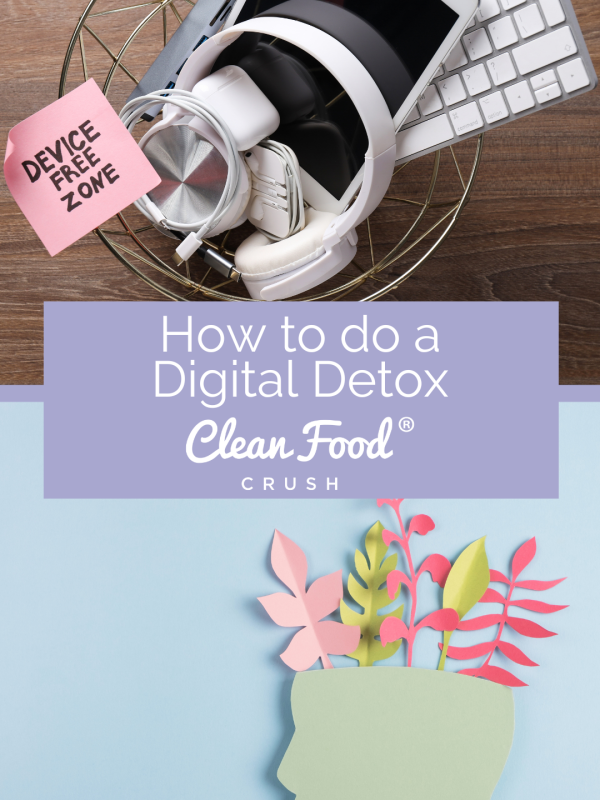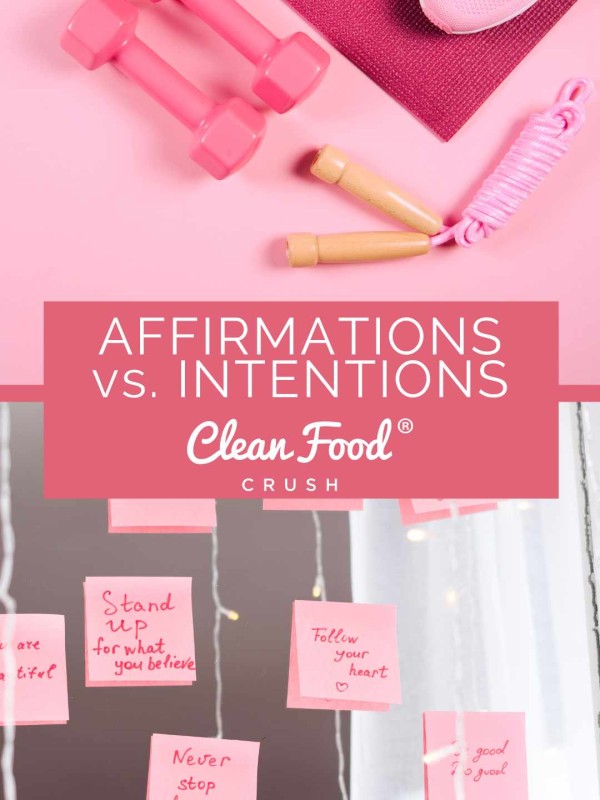This post contains affiliate links. Please see our disclosure policy.
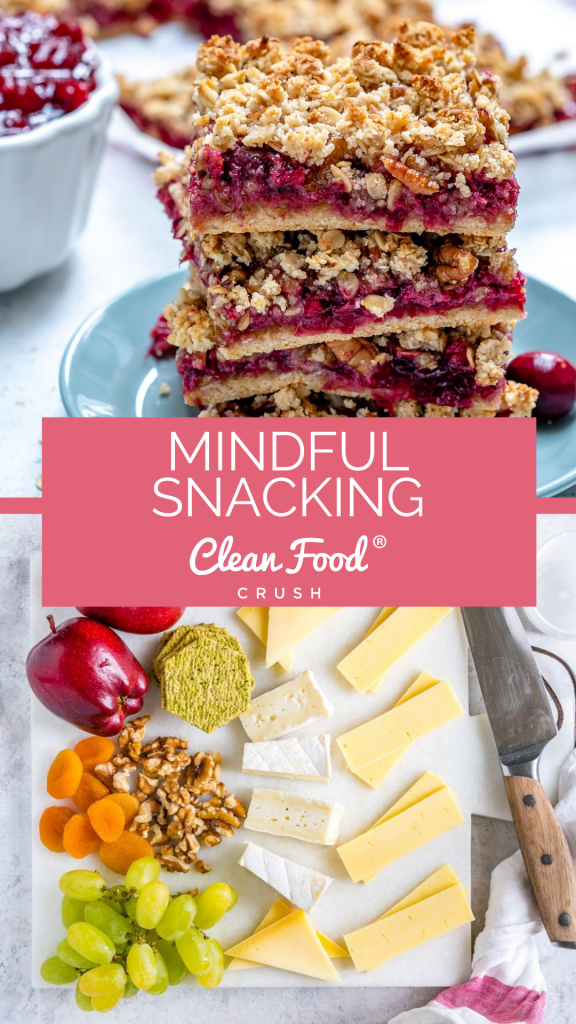
Tips for Mindful Snacking
If you’re like most people, you probably snack fairly often. Since snacking can either benefit or interfere with your health, it is essential to know how to do it right.
Keep reading to learn why snacking can be a good thing, things to keep in mind when snacking, tips for snacking mindfully, and finally, some simple and delicious snack ideas and recipes!
Benefits of Snacking:
Snacking can absolutely support your health, but it needs to be done in the right way. Instead of just providing extra calories, a good snack should provide quality nutrients as well. You can actually snack your way to better health!
Some benefits of snacking include:
- Helps control hunger, making you less likely to overeat at mealtimes
- May help control cravings
- Provides you with energy to fuel your daily activities
- Can help improve mental clarity & focus
- Supports balanced blood sugar levels
- Can provide your body with quality nutrients
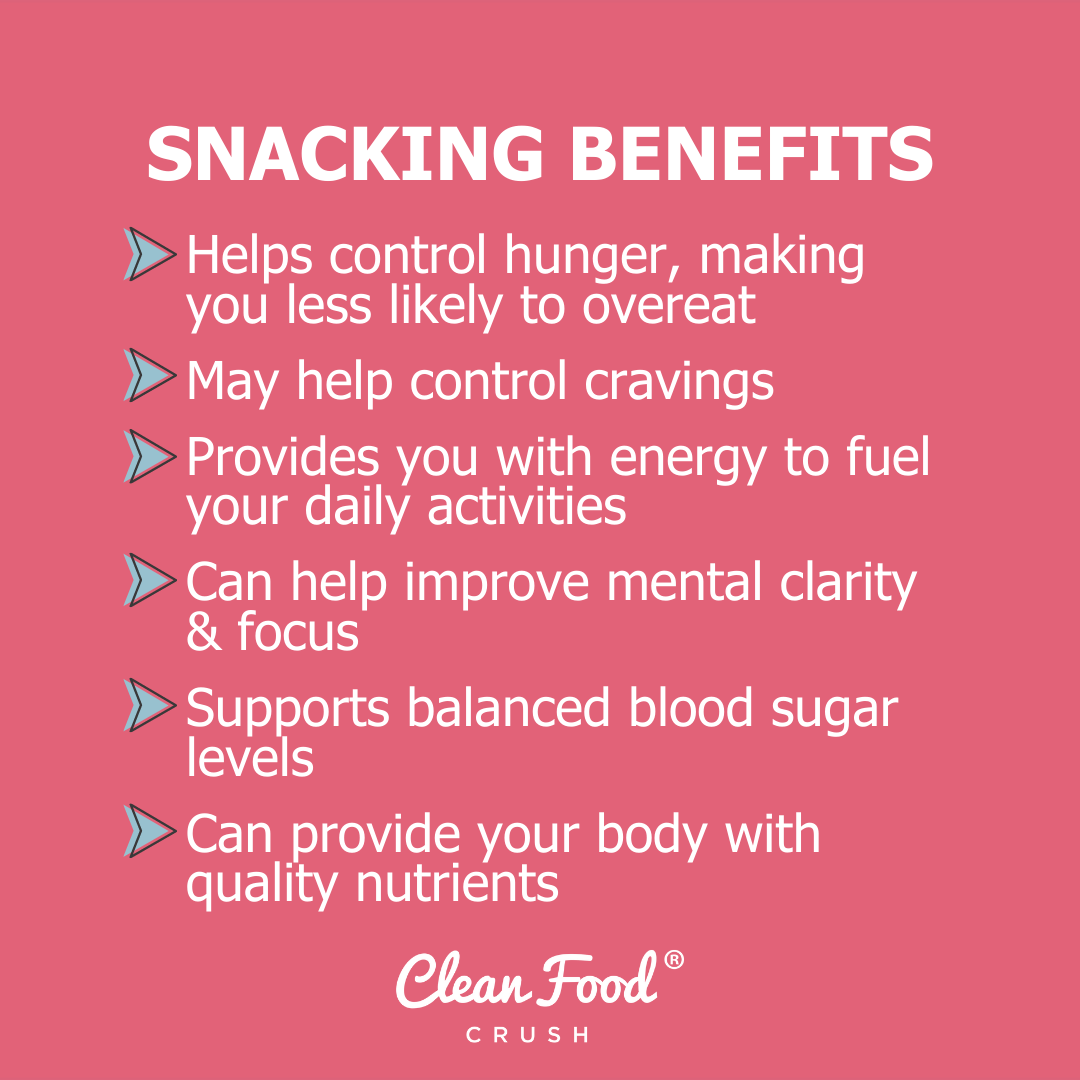
Caveats to Snacking
Despite the possible benefits, it can be easy for snacking to get out of hand. According to some studies, snacking frequency is on the rise, and most people reported snacking 2-3 times per day. People may be more likely to snack in certain situations, such as at social gatherings, when bored when surrounded by other people eating, and late at night. These snacks often involve highly processed carbohydrates like chips, pretzels, cookies, candy, and crackers and can lead to excessive energy intake, which doesn’t benefit your health. Eating late at night may also negatively impact your sleep, digestion and lead to weight gain.
So, it’s important to take steps to help ensure your snacking habits promote good health rather than take away from it. You may be surprised to hear that healthy snacking isn’t just about your food choices but about your mindset associated with it. This is part of mindful eating, which involves paying both attention and having intention with your eating.
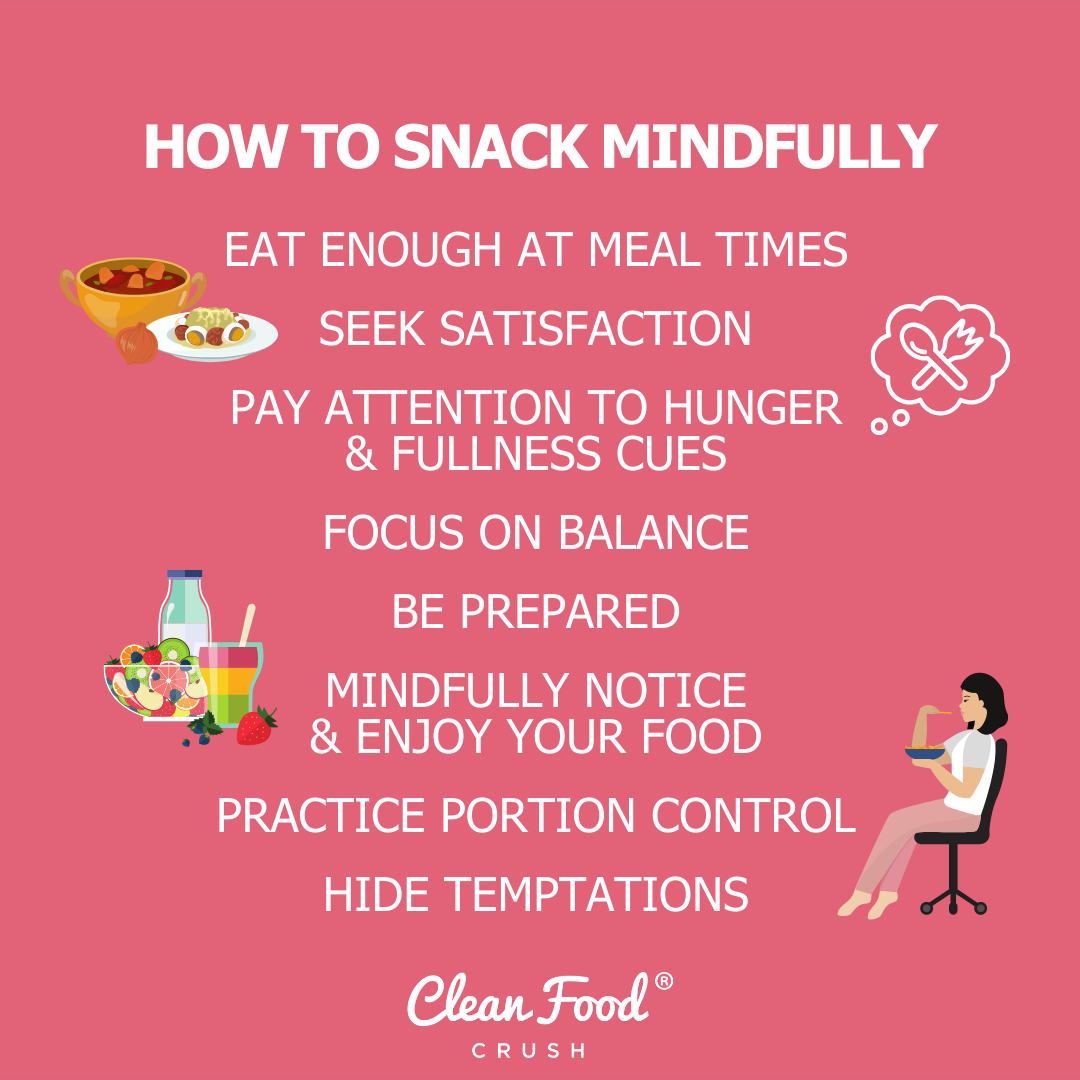
Tips for Snacking Mindfully
Here are some tips to help you snack mindfully & healthfully:
Make sure you’re eating enough at mealtimes. If you find yourself frequently hungry between meals, you may benefit from eating more or simply eating differently at mealtimes in order to not rely on snacks. Make sure your meals are large enough to satisfy your hunger and contain the right balance of macronutrients and food groups to keep you full. It’s normal to be hungrier some days more than others, so you can adjust your food intake accordingly and be sure to do so without guilt or judgment.
Seek satisfaction. Ask yourself what you truly want, and honor that. Repeatedly ignoring cravings or preferences often leads to binges, which can backfire on your health. If you crave something cold and sweet, eating something like crackers will never satisfy this, and you may find yourself continuing to reach for more due to not feeling satisfied. When you eat what you really want, though, you may be more likely to eat less (which is also a principle of intuitive eating, which you can read more about in this post).
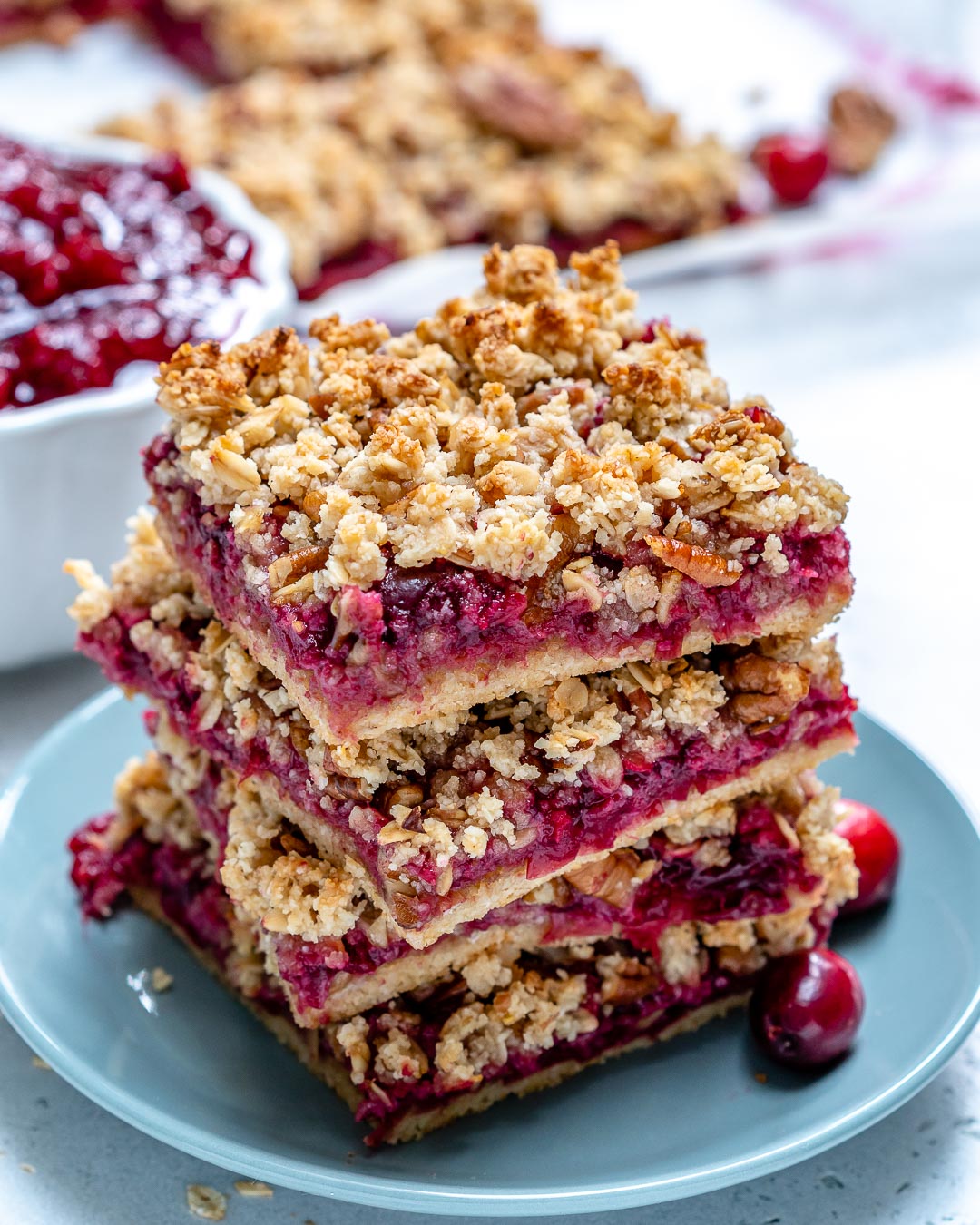
Flavor AND Energy will be POPPIN when you take a bit of these Cranberry Crumble Bars!
Pay attention to your hunger and fullness cues. These are also principles of intuitive eating. Honoring your hunger and fullness can help you regulate your food intake, so you neither over nor undereat. Become familiar with the hunger and fullness scale, which ranks these cues on a level of 1-10, with 1 being completely ravenous, and 10 being so stuffed you can barely move. Try assessing where your body is at before, during & after eating, which can help you be more in touch with your body’s innate cues and prevent snacking for other reasons such as boredom, habit, or external influences.
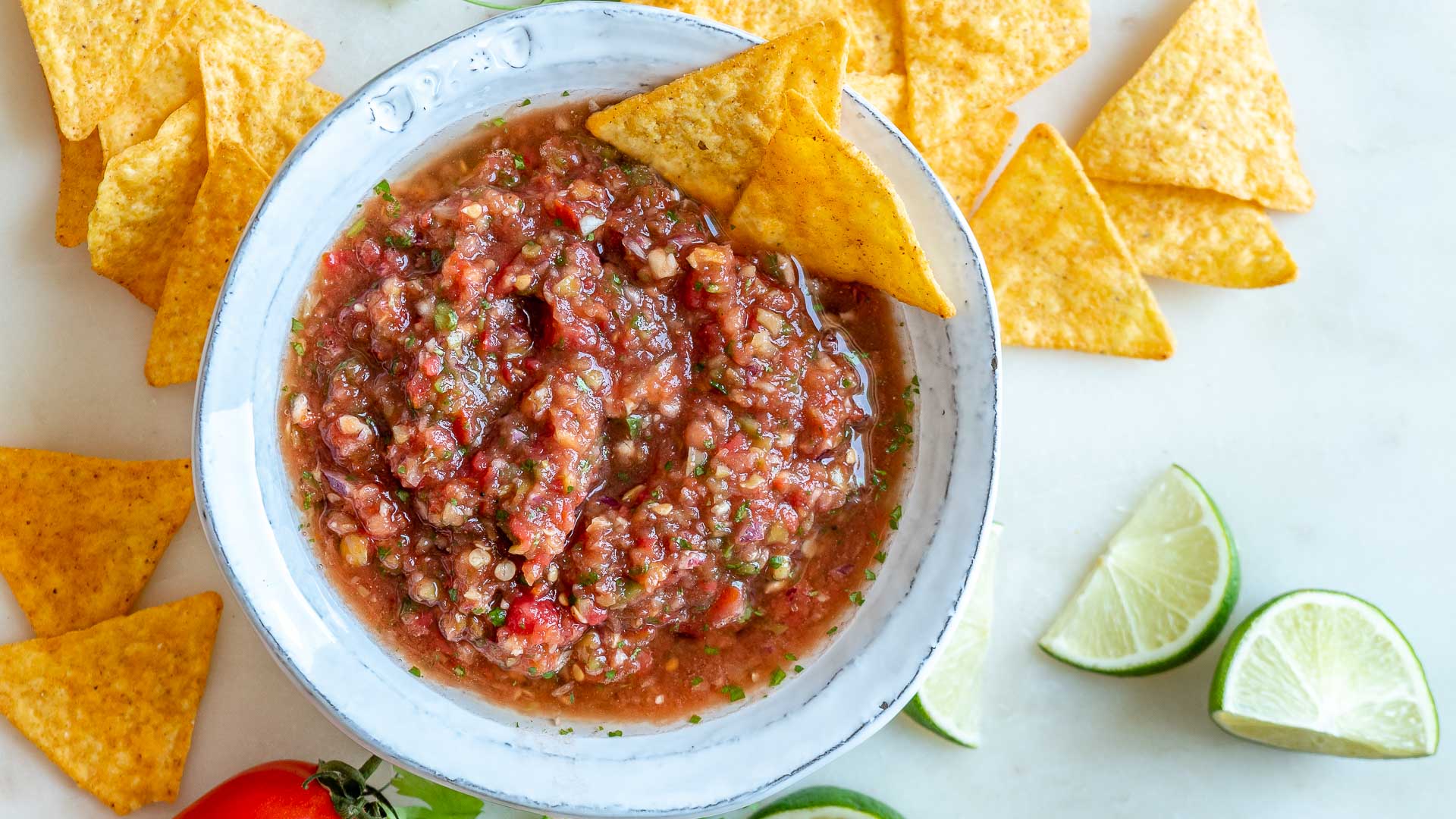
Nothing like a classic snack for comfort! This Quick and Easy Salsa packs flavor and vitamins all in one bite!
Focus on balance. Snacks should not just equal carbohydrates. Just like with all of your meals, it’s important to include a combination of complex carbohydrates, lean protein, and healthy fats with your snacks. Eating balanced snacks provides the most nutrient density while also helping keep you full and your blood sugar stable. Keep reading for plenty of examples of what balanced snacks look like!
Be prepared. You never know when you’ll want or need a snack, so try to have plenty of options available to you by keeping snacks on hand both at and away from home. Last-minute decisions rarely serve anyone well.
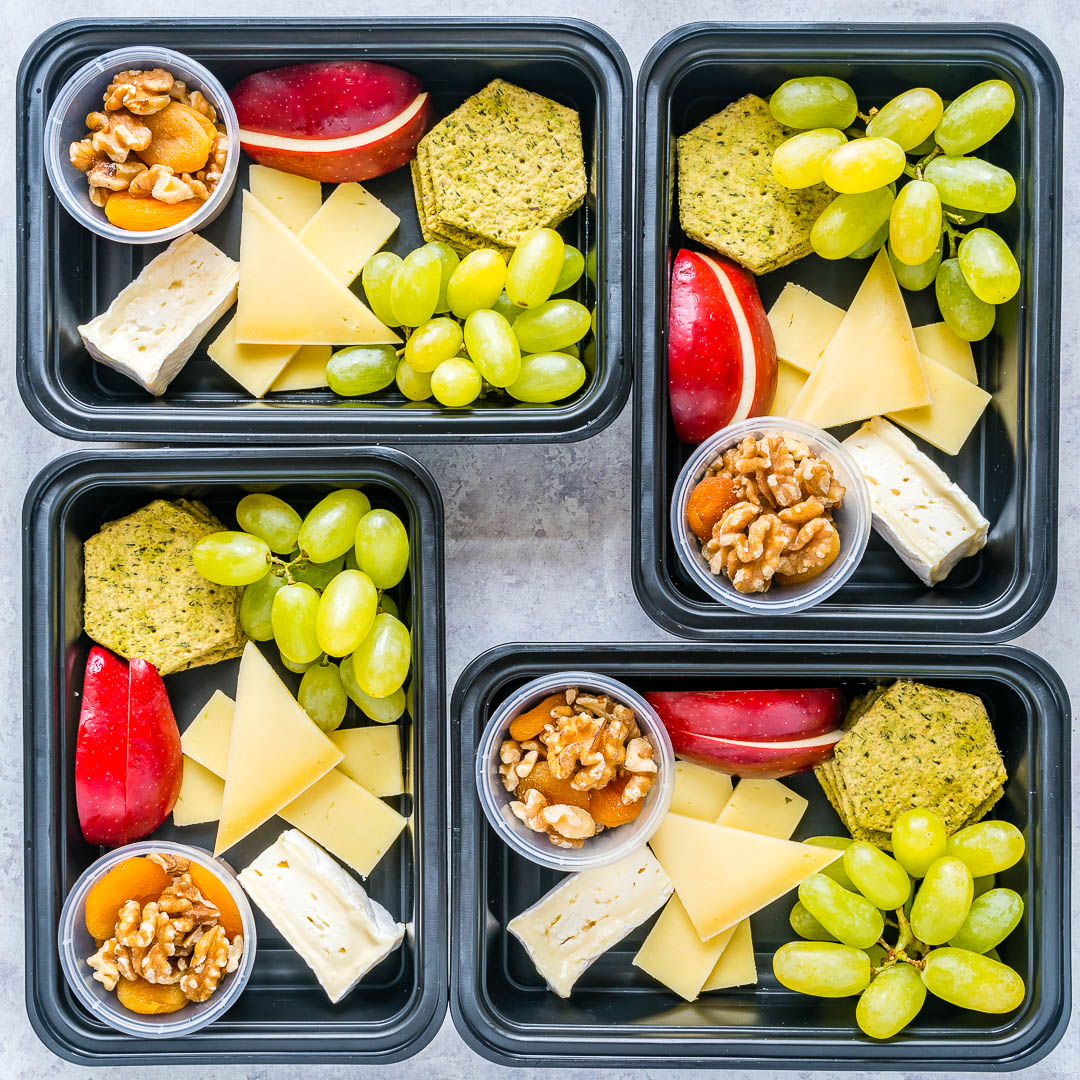
Be prepared like a BOSS with these Cheese + Fruit Bistro Boxes for Grab-n-Go Snacking!
Take time to notice and enjoy your food. Use all of your senses to notice what the food tastes, smells, and feels like, as well other details like its temperature, appearance, etc. This increases the enjoyment and can further help prevent mindless eating.
Be mindful of portions. Remember that snacks should be just that- a snack and not another meal. It’s hard to practice self-control when you have an entire bag of something tempting in front of you since your brain can become trained to eat until something is empty. Try portioning out your snacks and keeping extras out of your reach to help with this. This is not about restricting yourself but assisting yourself with recognizing your hunger and fullness cues.
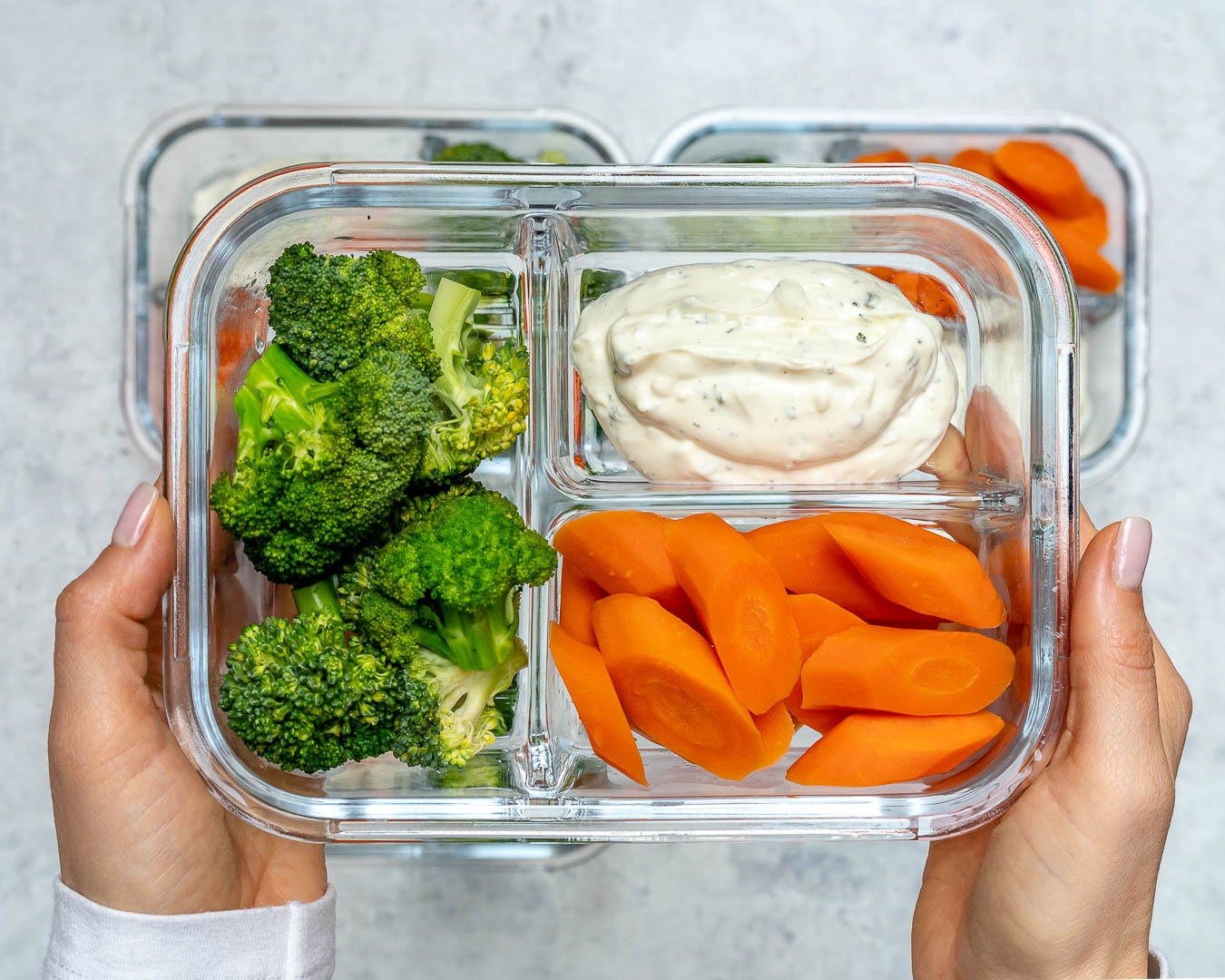
These Steamed Veggie Snack Packs in Bento Boxes help keep portions under control and healthy snacks super accessible!
Set up your environment. We all get tempted by food, so it’s not fair to yourself if you are constantly surrounded by foods you find hard to resist. Overly restricting yourself isn’t ideal, but you also shouldn’t have unlimited access to foods you know you will consistently be tempted by. Set yourself up for success by stocking your home with plenty of healthful ingredients and snacks options. When it comes to treats and other indulgences, practice telling yourself that you can have them whenever you want. This can help decrease the strong desire to overeat on them.
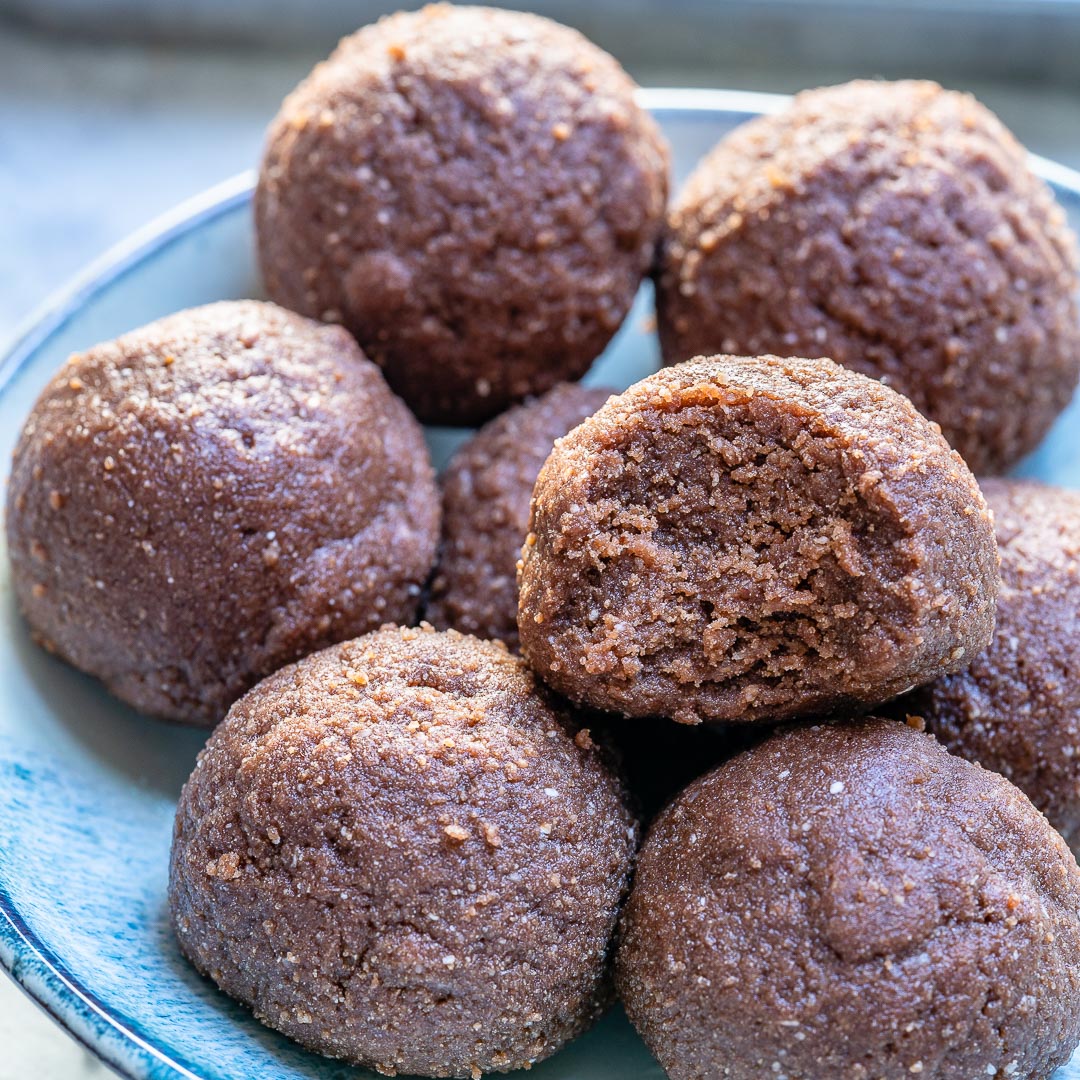
These Chocolate PB Protein Bites are packed with flavor, energy, and serious prep power. Toss some in the freezer for a weak moment of temptation. Power Up!
Remember that snacking is optional. Snacking doesn’t need to become a habit just because food is available or other people are eating. It should be addressed on a day-to-day basis and only practiced when truly desired or needed. With practice, you will be better able to identify if you need to eat. If the answer is no, feel free to pass it on!
Healthy Snack Ideas:
With all those tips in mind, you’re probably wondering what you should eat when you DO need or want a snack!
Here are some nourishing and delicious snack ideas:
- Cranberry crumble bars
- Any of these delicious game day snacks
- Veggie snack packs
- Cheese + fruit bento boxes
- PB applesauce mini muffins
- Low-carb sandwich roll-ups
- Chocolate PB protein bites
- Egg + avocado toast
So the next time you find yourself hungry for a snack, we hope you’ll keep this information and tips in mind. Happy snacking!


